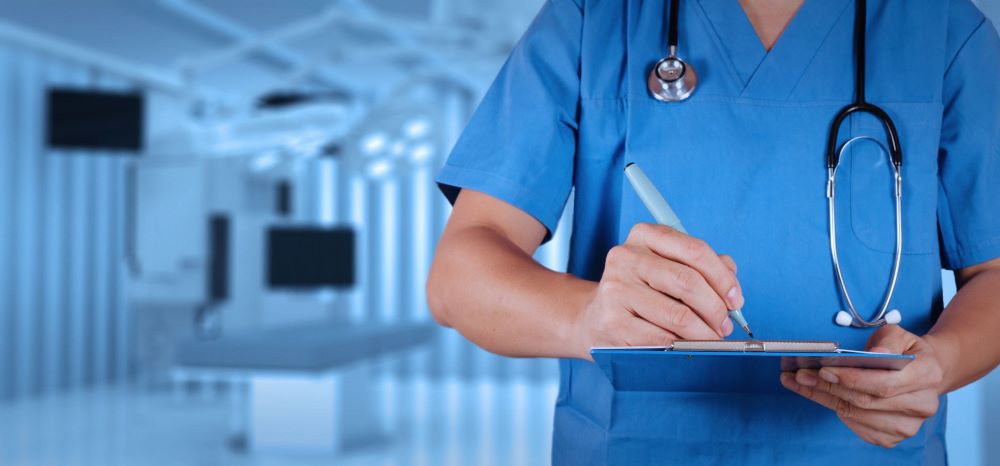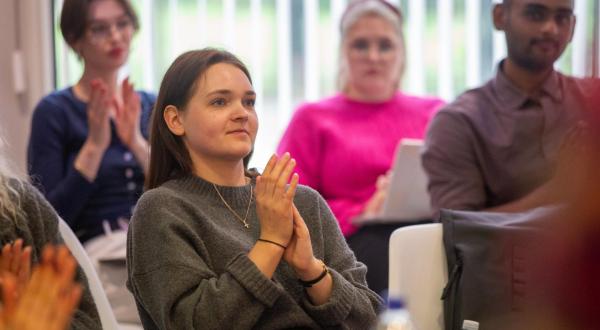Medicine 3.0 study programme – a new era in Latvian medical education
In autumn, Rīga Stradiņš University (RSU) will launch a new study programme, Medicine 3.0, aimed at introducing the most updated methods and significantly expanding and diversifying the range of study courses and topics offered. The programme’s title, Medicine 3.0, symbolises a significant, efficiently designed cycle of change that addresses today's technological, societal and academic challenges. One of the developers and implementers of the programme is Assoc. Prof. Ingus Skadiņš, Vice-Dean of the RSU Faculty of Medicine and the Director of Medicine study programme, who speaks on the philosophy, creation and benefits of the programme.
The study programme as a living organism
‘I have always felt that study programmes are living organisms. They are constantly evolving, adapting and are never “done”,’ says Skadiņš.
In his view, medical education should not be static. Technological changes, artificial intelligence, digitalisation, even geopolitical events such as the need for military medicine, have a major impact on what students have to acquire.
It was this understanding that was at the core of RSU's decision to create Medicine 3.0. It is a fundamentally revised and improved study programme, which involves not only changes in content, but also a major transformation of the learning process.
 Photo: Courtesy of Depositphotos
Photo: Courtesy of Depositphotos
What is changing?
Medicine 3.0 is not just about cosmetic changes. According to Assoc. Prof. Skadiņš, it is a “general clean-up”, a process of revising about 50-60% of the current content.
The programme is being updated to include elements relevant to today’s context, such as digital competences, the use of artificial intelligence in medicine, entrepreneurial skills, and other innovations.
‘Nowadays, it is not enough for a doctor to know how to treat diseases. They need to know how to set up a private practice or launch a start-up, how to use design thinking to develop business ideas, how to work out a business plan, including objectives, resources and economic analysis. Even the Cabinet Regulation stipulate that these skills must be provided already at a basic level,’ says the Vice-Dean of the Faculty of Medicine.
Feedback from student and industry professionals
Feedback has been a crucial aspect in developing the programme. According to Assoc. Prof. Skadiņš, students' opinions are collected systematically - through surveys, discussions in the Faculty Council and Senate, and via other forms of communication. ‘By working together constructively, we realise that some things just don't work. We need to change them so that the study environment is not only of high academic quality, but also clear, friendly and inclusive.’
Also, industry professionals, doctors and employers are involved in the design of courses. For example, the laboratory medicine course has been developed in collaboration with relevant institutions in the field.
‘We have the advantage of having clinical doctors as lecturers. They know best what needs to be taught now so that new doctors can become full-fledged members of the team.’
Research as an integral part of studies
One of the most important innovations is to strengthen the foundation of research. Many first-year students arrive with different levels of background knowledge. Some have conducted research at school, while others have not. To bridge this gap and strengthen research skills, the programme has introduced a new study course Introduction to Research.
Skadiņš explains: ‘The aim of this course is to develop students' research thinking and practical skills. We teach students how to formulate the objectives of a research paper, design tasks, evaluate and select sources of scientific literature, properly summarise conclusions based on the results of their work. After completing this course, it is much easier for them to focus on their individual research, which is important both for their final theses and for starting their doctoral studies.’
Digital transformation in healthcare education
All healthcare professionals need knowledge, skills and competences to generate, store and use digital health data to address complex healthcare problems and implement digital transformation, as we live in an era of data abundance. Through the new digitalisation study course, students will learn how to work with digital health data and the information systems used in the healthcare field. They will also be familiar with telemedicine solutions.
Legal security
Medicine 3.0 will provide students with legal knowledge of national and international legislation and the court practise governing the field of medical law.
For example, it will develop their ability to deal with legal issues and provide an understanding of how legal norms can be applied, including the skills to prepare documents and to defend both their own rights and patients’ rights.
When does it start?
The new programme will start on 1 September 2025, but it has already been submitted for accreditation to the World Federation for Medical Education (WFME). This accreditation will certify the programme’s quality on a global scale. Assoc. Prof. Skadiņš notes that ‘Accreditation is not just a formality; it is a mark of quality. Students appreciate the opportunity to study in a modern programme that meets international standards.’
‘It's difficult to evaluate a programme that you haven't experienced yet. You can't judge a soup without tasting it. But once the first graduates have completed the course, we will be able to objectively assess the results,’ Skadiņš adds.
Medicine 3.0 is not just a new study cycle. With this step, RSU confirms its ambition to be not only a national leader in higher medical education, but also a significant player on the international stage.
Related news
 18 Student teams to start developing their ideas in B-Space incubation programmeFor RSU Employees, For Students, Innovation, B-Space
18 Student teams to start developing their ideas in B-Space incubation programmeFor RSU Employees, For Students, Innovation, B-Space


